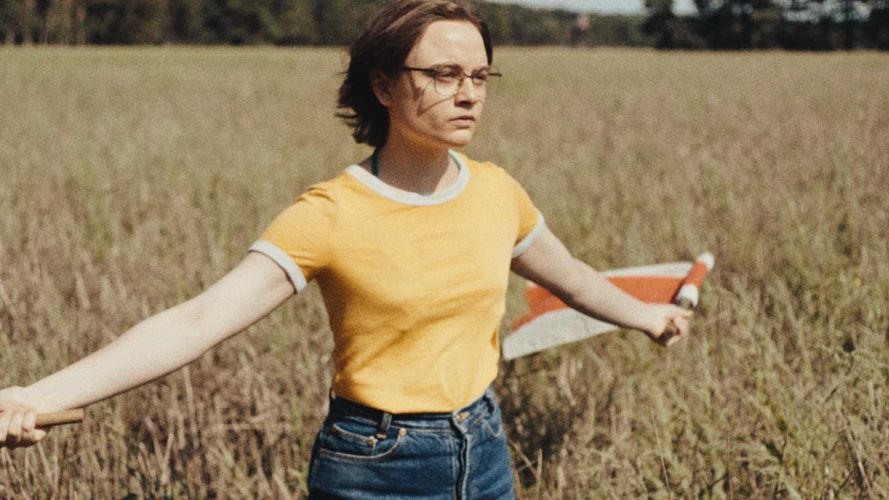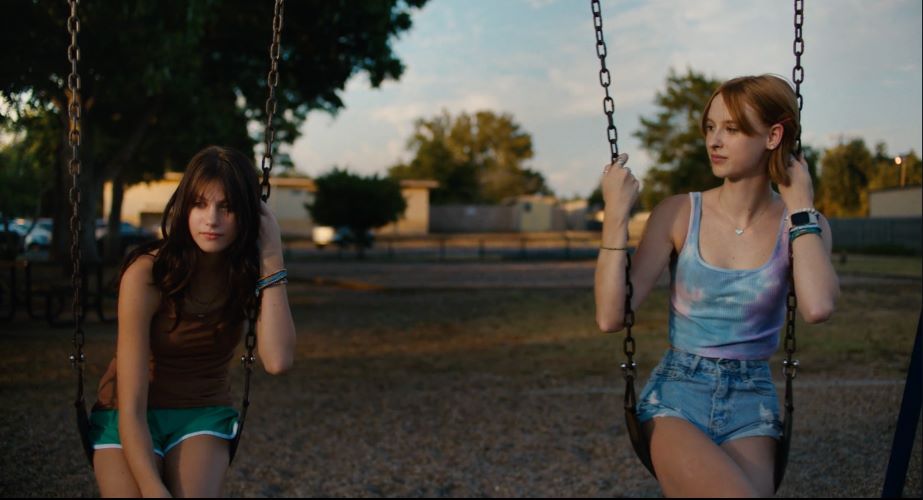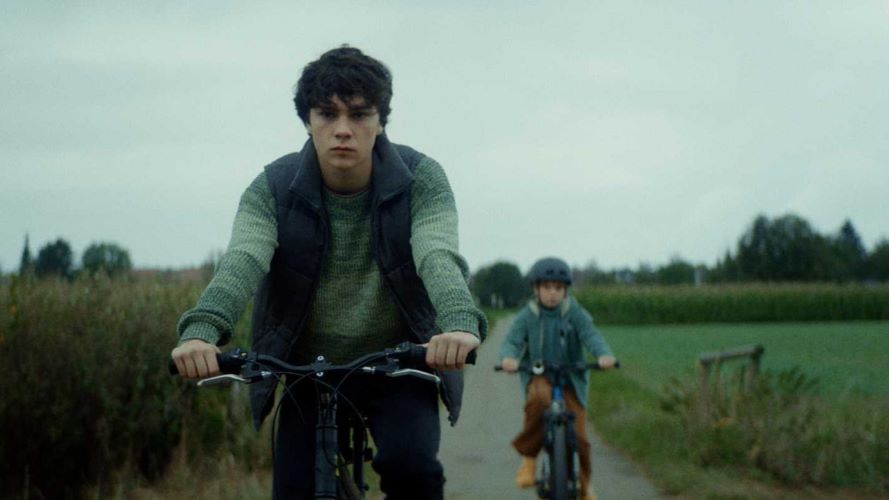Sharing my excitement about the films I’ve seen so far at the Jerusalem Film Festival.

Sound of Falling
Sound of Falling is mesmerizing, vast, and mysterious. Director Mascha Schilinski, who co-wrote the screenplay with Louise Peters, reminds the viewer from the start that our eyes can deceive us, that what we see is not necessarily what is true. Exquisitely detailed and assertively non-linear, the film drifts through time in a German farmhouse, over several decades, focusing primarily on a single protagonist in each era. The youngest, from the earliest period, circa World War I, is Alma (Hannah Heckt), bright and inquisitive with two blond braids, she is innocent enough to voice many of her questions aloud. Why is there a photograph of a dead child that looks so much like her? Death and violence are ever-present, and war, although not for the most part explicitly dealt with, always has an impact. Yet the film itself is sparked by dark humor, playful pranks, and the vivaciousness of youth. All four protagonists – Alma, Erika, Angelika, and Lenka, are young girls, ranging in age from about 9 to late teens, destined to grow into women in a patriarchal culture where women are severely oppressed.
The film is in many ways a reflection on memory, the narratives and trauma passed on from one generation to the next, the stories that live inside the walls. It is a reminder that we are all unreliable narrators of our own lives, and of the world around us, endeavoring to create meaning and fill the gaps left by fragments of images and words, never certain if our memory of an event represents the event itself, or what we hoped or feared.
Next screening: Wednesday, July 23rd at 14:30

American Baby
Ellen Rodnianski’s American Baby, with a screenplay co-written together with Tanya Leonova, offers a perspective on aspects of American culture, and is particularly timely now, in the post-Roe v. Wade era. Oli (Abigail Pniowsky) has grown up in the small Texas town to which her mother immigrated from the Ukraine. Like most of the community, Oli has been brought up in the Baptist Church, with little or no information on sexuality or contraception, and the belief that having an abortion is a direct route to hell. Experiencing her own sexuality and even more so, feeling pressured by her peers to become sexually active and experienced, it is no surprise that Oli finds herself pregnant.
Abigail Pniowsky delivers an intelligent, courageous and nuanced performance as Oli, struggling with a moral and practical dilemma. She is the heart of the film and engages the viewer’s empathy from the start. The film moves back and forth in time, from the present, when Oli is close to 30 weeks pregnant, to scenes from the not-so-distant past, when she was a rather shy high school student with a crush, hoping a boy will like her, and all that follows.
The film offers a perspective on small town America, where the church leads the community, yet there is often a contradiction between appearances and behavior. Teenagers are told to remain chaste, and as long as they manage to keep up the appearance of chastity, all is well. When a teenager falls pregnant, it turns out that the Lord’s love has limits.
Next screening: Sunday, July 20th at 11:30

No Dogs Allowed
This bold and sensitive debut feature by Steve Bache explores a most triggering and painful theme: pedophilia. What may be even more difficult to contemplate is that the film focuses on 15-year-old Gabo (Carlo Krammling) who feels an attraction to his best friend’s younger brother Sam. From a moral perspective it’s a fascinating question: what do you do when you want something that you know is wrong? Usually, if you are a young person, you might confide in an adult. There doesn’t seem to be much adult guidance in Gabo’s life. His father is entirely absent, to the extent that he is not even mentioned in the film. Gabo’s mother spends most of her days napping on the couch. His older sister Emi spends most of her time at her boyfriend’s place. So Gabo is left to figure things out for himself. To a certain extent there is something predictable about the narrative trajectory of this film, but perhaps when dealing with such an explosive issue the more traditional narrative framework allows the focus to be on Gabo and the development of his thoughts and feelings.
Krammling carries the weight of this film and he does so with astonishing depth and nuance. I looked him up and was very relieved to see that he was born in 2002, so he was an adult when he made this film. There are no explicit scenes in the film.
Next screenings: Monday, July 21st at 21:00; Tuesday, July 22nd at 15:15
The full program and ticket information is available on the Jerusalem Film Festival website.





